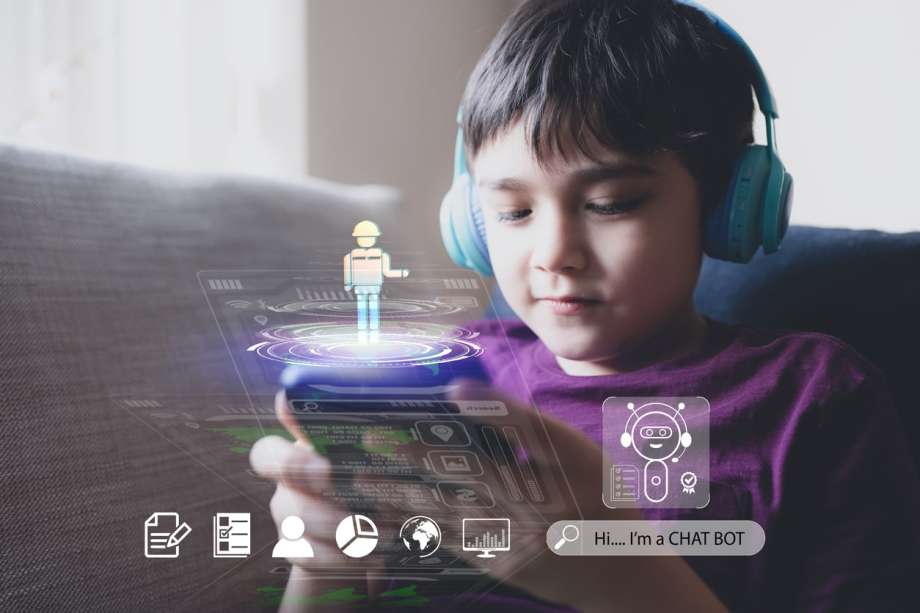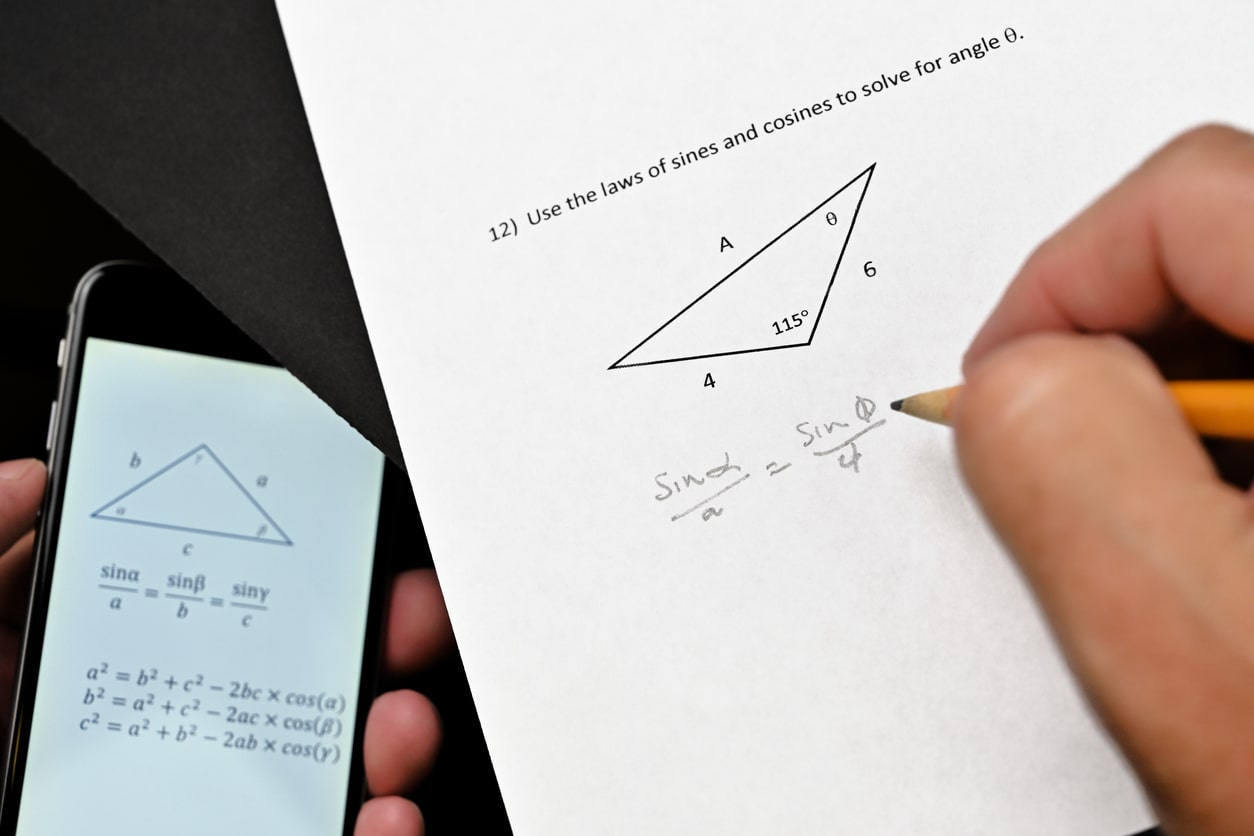Are Your Kids Cheating with ChatGPT: What Parents Need to Know

Martin Luther King Jr. once said, “The function of education is to teach one to think intensively and to think creatively.” Students learn by conducting research, using problem-solving skills, and challenging themselves to investigate new ideas and ways of thinking.
However, technology has introduced a new challenge to the learning process. Artificial intelligence language models such as GPT-4 and ChatGPT have enabled students to receive quick responses to any questions they may have reducing the need for research and thinking.
Many school districts including the New York City Department of Education have banned the use of ChatGPT, according to the National Education Association (NAE).
However, the question remains “Are your children cheating with ChatGPT, or is it a great tutoring and literacy tool?”
We break down what parents should know about ChatGPT, and how you can encourage kids to use AI like ChatGPT for schoolwork without getting in trouble for plagiarism.
Related: What to Do When Your Child is Cheating
What is ChatGPT?
ChatGPT is a chatbot that answers questions, supports individuals with various tasks, and allows them to converse with an AI. It was developed by OpenAI, a research and artificial intelligence company. ChatGPT responds in a human-like manner, making it nearly impossible to tell that an AI created the responses.
ChatGPT is being used universally because it can provide knowledgeable answers to millions of questions. According to the Information Technology and Innovation Foundation (ITIF), this AI tool has grown in use among kids and adults even faster than platforms like TikTok and Instagram!
ChatGPT had approximately 100 million active users two months after its release. Its rapid growth is a result of the numerous tasks it can perform.
According to Forbes, ChatGPT can:
- Create emails instantly.
- Write algorithms or codes.
- Create essays on any topic.
- Give advice on relationships and family life.
- Create lesson plans and quizzes.
- Get assistance on any complicated subject.
- Generate ideas on every topic.
- Summarize any article or research.
- Help improve students’ thinking skills.
Is AI like ChatGPT Considered Cheating?
Using artificial intelligence language models like ChatGPT, according to ResearchGate, poses numerous issues, including plagiarism and academic dishonesty.
Students can use chatbots like ChatGPT to write an entire essay or complete homework assignments that would otherwise require more independent research, synthesis, and analysis. The aim of education, which is to educate students on critical thinking and doing research, is lost with the usage of ChatGPT and other forms of AI.
According to CBC, many school students have admitted to cheating with ChatGPT. Middle, high school and college students use the program to do their schoolwork. Students who do not like to do schoolwork or find difficulty in certain subjects are motivated to use ChatGPT because it guarantees them higher grades. The widespread use of ChatGPT to complete assignments has led to many schools across the United States trying to ban ChatGPT and stop students from cheating.
Can Students Get Caught Using ChatGPT?
Yes, many K-12 teachers have caught their students cheating with ChatGPT. There are AI cheating detection tools that parents and school educators can use to determine whether a student used ChatGPT to complete their schoolwork.

Parents should be aware that traditional plagiarism detection tools do not detect content created by AI as plagiarism. As a result, using AI cheating tools to check essays is required. These AI cheating tools can identify AI-written text in essays and articles. They have limitations, but they can still be used by parents and teachers when assessing students' work.
On January 23, 2023, OpenAI released a new technology that can distinguish between texts written by humans and texts written by artificial intelligence. They have made AI text classifiers in the past, but the new one is far more advanced. However, it is crucial to know that even the new technological classifier still has a few limitations.
Limitations of the AI Text Classifier
- The AI text classifier does not always give accurate results.
- It could only be used for texts written in English.
- It will not work on an updated version of ChatGPT or other language models.
- The classifier is only reliable when used on long texts (above 1000 characters). 1000 characters are equivalent to about 200 words.
- 9 percent of the time, the classifier gives a false-positive. That means some human texts can be falsely classified as AI-written texts.
Some schools are taking a different approach by encouraging teachers to change the format of assessments. They believe that assessments should require students to prove they understand the topic by explaining topics in their own words rather than simply writing down information.
How to Talk to Kids about ChatGPT and Plagiarism
Students must grasp how ChatGPT and other AI language models might be used unethically. According to Education Week, parents and teachers must talk to children about ChatGPT and plagiarism. Here are some suggestions on how to talk to your children about the risks of using AI to do their assignments and how doing so harms academic integrity.
- Explain to your child what plagiarism is and how copying and pasting text from ChatGPT is considered plagiarism and a form of cheating. It should not be used as a shortcut to complete schoolwork.
- Explain to your children the importance of researching and creating original content in the process of student learning. By researching, students develop essential skills needed for the future. Some of these skills include creative thinking and problem-solving skills.
- Tell them that ChatGPT can create a complete essay about any subject, but claiming those essays as theirs is considered cheating.
- Tell your children that teachers can now use the new AI text classifier to find out if they have used ChatGPT to complete schoolwork.
- Analytics Insight urges parents to explain to their children that generative AI like ChatGPT is not a search engine. It gets its responses from data previously embedded in the program. This means there is a possibility that the information it provides is false.
5 Ways to Use AI/ChatGPT as a Homework Tool Without Cheating
Open Universities Australia is encouraging students to use ChatGPT positively. Here are 5 steps on how to use ChatGPT and other forms of AI to help with homework without cheating and plagiarising.
-
Use ChatGPT to Get Ideas for Assignments
The first step to completing assignments is brainstorming. Your children must get an idea of how they want to approach the topic they are writing about. They can ask ChatGPT to give them ways to analyze a topic.
For example, if they are writing an essay about the harmful effects of television on children, they can ask ChatGPT to give them ideas on how to outline their essays. By using ChatGPT as a brainstorming tool, your children would have an idea of how they are going to write their essays, but they would still have to research and use creative thinking to write them. As a result, the learning process is unharmed.
-
Use ChatGPT as a Research Tool

Research is a crucial component of the learning process. There is nothing wrong with your children using ChatGPT to help find trustworthy sources on any subject. When ChatGPT recommends trustworthy websites, they should read and analyze the articles without its help.
This saves students time searching for trustworthy websites. Keep in mind that ChatGPT can analyze and summarize articles; but, it would be considered cheating if the AI chatbot does the analysis instead of the student.
-
Use ChatGPT to Simplify Complex Subjects
ChatGPT can answer any question your children have. It can simplify very complicated texts and explain complicated subjects in an understandable manner. By using it as a tutor, students can get answers to all their questions at any time. It could also help your children improve many learning skills.
According to Study.com, 67 percent of teachers agree that ChatGPT should not be banned but used to help kids develop their skills. ChatGPT can help children improve in the following skills.
- Creative thinking
- Problem-Solving skills
- Writing
- Studying
- Data Science
- Analysis of Texts
- Programming
- Reading
- Editing
4. Use ChatGPT to Check Spelling and Grammar
ChatGPT can proofread your children’s essays and make suggestions on how to enhance them. Students should only read the recommendations and not copy and paste any altered texts created by ChatGPT. Students' writing skills will improve in the long run if they keep the tips in mind when writing in the future.
As a bonus, parents may also save some time if you often volunteer to proofread your child’s assignments before they’re turned in.
5. Use ChatGPT to Cite Trusted Sources
ChatGPT can be used as a reference tool to help create in-text citations and bibliographies for more trusted academic sources where students are getting their information. If they only rely on ChatGPT as their main source without researching the information it presents, that can be seen as plagiarizing.
Help Kids Understand the Consequences of Cheating
The use of ChatGPT and other forms of AI programs among school students is a controversial topic. Students cheating with ChatGPT has proven to harm the student learning process. Many school districts have banned the use of this program to reduce the number of cheaters in schools.
However, according to NPR, it is unrealistic to completely ban students from using ChatGPT for schoolwork because everyone is cheating. As a result, children should be taught how to use ChatGPT to assist them with homework and help enhance their skills.

